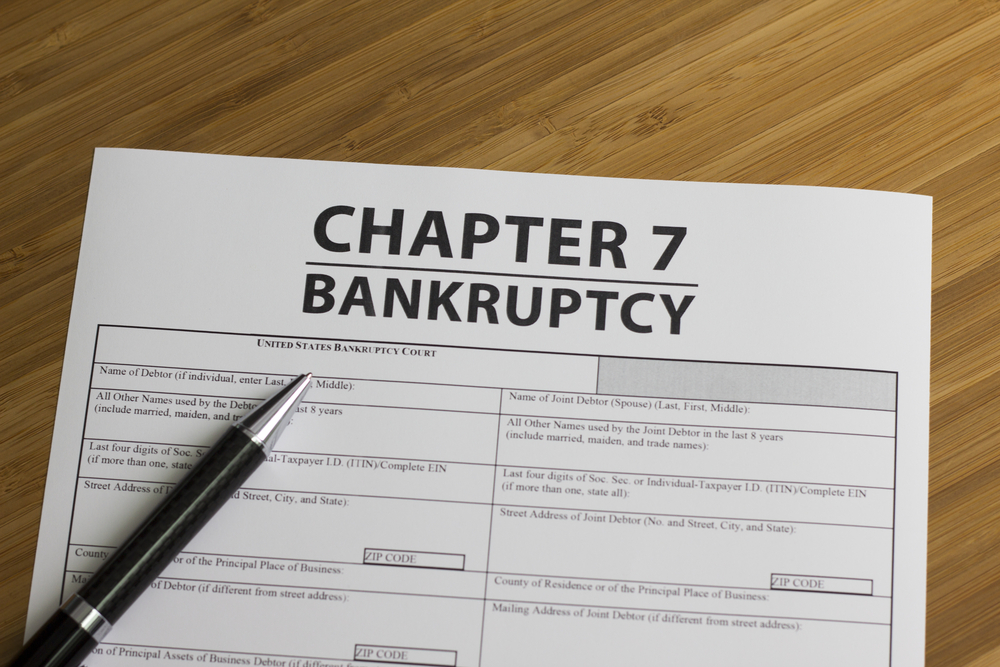By: Michael L. Moskowitz and Melissa A. Guseynov
 In a recent opinion of note, the Bankruptcy Court for the Eastern District of California sided with the majority of courts in holding section 362(c)(3)(A) of the Bankruptcy Code does not apply to property of a debtor’s estate. In re Thu Thi Dao, Case No. 20-20742 (Bankr. E.D. Cal. May 11, 2020). Read the full opinion here.
In a recent opinion of note, the Bankruptcy Court for the Eastern District of California sided with the majority of courts in holding section 362(c)(3)(A) of the Bankruptcy Code does not apply to property of a debtor’s estate. In re Thu Thi Dao, Case No. 20-20742 (Bankr. E.D. Cal. May 11, 2020). Read the full opinion here.
In this case, Debtor commenced a second chapter 7 bankruptcy case shortly after his prior case had been dismissed for failure to timely file schedules. When the chapter 7 trustee suspected Debtor failed to list all of his assets in the petition, he filed a motion seeking delivery of all unscheduled assets, but was concerned section 362(c)(3)(A) would terminate the automatic stay within thirty days as to such property. The Bankruptcy Court was called upon to clarify whether section 362(c)(3)(A) applied to property of the Debtor’s estate.
Section 362(c)(3)(A) states that where a “case of the debtor was pending within the preceding 1-year period but was dismissed,” the automatic stay is limited to 30 days after the filing of the subsequent case “with respect to any action taken with respect to a debt or property securing such debt . . . with respect to the debtor . . . .” See 11 U.S.C. § 362(c)(3)(A).
Siding with the majority view, Judge Christopher M. Klein, U.S.B.J. framed the issue as to whether the reference in Section 362(c)(3)(A) to termination “with respect to the debtor” should be “construed implicitly to extend to the ‘estate’ . . . even though neither ‘estate’ nor ‘property of the estate’ appears in Section 362(c)(3).” Judge Klein explained the minority’s “tunnel vision manifests itself by way of disregard of how Section 362(c)(3) applies in chapter 7.” For example, if one takes the minority view, the automatic stay would likely terminate before the 341 meeting of creditors and potentially prior to the filing of schedules. Thus, the automatic stay could terminate before the chapter 7 trustee is able to determine debtor’s assets and property, whether disclosed by debtor or not. Furthermore, Judge Klein noted that “none of the minority cases involve a chapter 7 trustee concerned about preserving stay protection for property of the estate, but rather focus on chapter 13 cases."
The issue of whether this provision automatically terminates the stay with respect to property of the estate has become a divisive issue throughout the courts. The majority view, which includes the Fifth Circuit, holds that the stay does not terminate with respect to property of the debtor’s estate. See e.g., Rose v. Select Portfolio Serv'g, Inc., 945 F.3d 226 (5th Cir. 2019), petition for cert. denied June 29, 2020 (No. 19-1035). It appears the courts in the District of New Jersey and the Western District of New York have also adopted the majority view. See U.S. Bank N.A. v. Mortimore (In re Mortimore), No. 11-955 (RMB) (D.N.J. Dec. 21, 2011); In re Simonson, No. 06-22833 (MBK) (Bankr. D.N.J. Mar. 2, 2007); In re Rice, 392 B.R. 35, 38 (Bankr. W.D.N.Y. 2006).
The minority view, which includes the First Circuit, holds that the stay terminates with respect to property of the estate. See e.g., Smith v. Me. Bur. of Rev. Servs. (In re Smith), 910 F.3d 576 (1st Cir. 2018). The Eastern District of New York has fallen somewhere in between the majority and minority views, stating “the stay is lifted ‘with respect to a debt or property securing such debt’ and with respect to leases — regardless of whether the property or the lease is property of the estate or property of the debtor.” In re Bender, 562 B.R. 578, 580 (Bankr. E.D.N.Y. 2106) (explaining “there exists an inherent flaw in both the majority and minority reasoning and holdings”).
This circuit split is certainly ripe for analysis and determination by the Supreme Court. Weltman & Moskowitz will continue to follow this case and report back with updates on this issue.
Please feel free to call Weltman & Moskowitz with any bankruptcy questions or challenges you, your colleagues, or clients, may have.
About Weltman & Moskowitz, LLP, A New York and New Jersey Business, Bankruptcy, and Creditors’ Rights Law Firm:
Founded in 1987, Weltman & Moskowitz, LLP is a highly regarded business law firm concentrating on creditors’ rights, bankruptcy, foreclosure, and business litigation. Michael L. Moskowitz, a co-founder, focuses his practice on business and bankruptcy litigation, shareholder and partner disputes, business divorce, commercial dispute resolution, as well as a full range of creditor’s rights, foreclosure, adversary proceeding litigation, corporate counseling, M&A, and transactional matters. Michael can be reached at (212) 684-7800, (201) 794-7500 or mlm@weltmosk.com. Melissa Guseynov is an associate with the firm. Melissa can be reached at mag@weltmosk.com.







